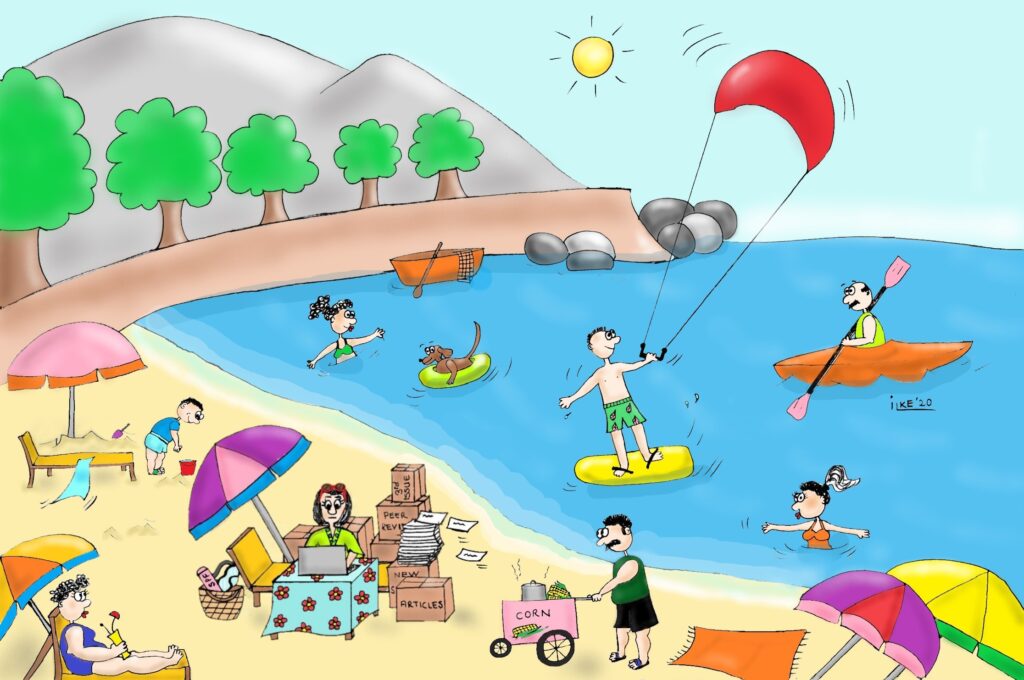Editors are the stewards of their journals. They are responsible for the content of the journal, as well as the accuracy of an ongoing publishing process. Year round, editors are accountable to the journal owners and stakeholders,1 including reviewers, authors, and readers.
The editor role requires several skills that are crucial for the job. Intellectual adaptability is one of them. The editors should be prepared to read and decide on various topics across the scope of their journals. In this regard, a broad scientific interest is essential. Decisiveness and efficiency are also important, as an editor has to make critical decisions on submitted/peer-reviewed manuscripts almost every day. Good writing skills are not enough for the editorship. Representing both themselves and their journals, editors should have good communication skills, as well.2
Moher et al.3 developed 14 key core competencies for scientific editors. Three major areas included the qualities and skills of the editor, publication ethics and research integrity, and editorial principles and processes. In terms of skills, a broad knowledge of the journal’s scope is essential. Making sound and fast judgments while deciding on manuscripts is of great importance. This would require the skill of synthesizing information. To maintain lifelong learning, it is of value for editors to join a professional society for scientific editors, attend relevant conferences and symposiums regularly, and set learning goals. Clear communication skills from a leadership perspective are also essential. Regarding publication ethics and research integrity, the editor should have the ability to identify several issues such as conflict of interest, plagiarism, redundant submissions, and bias in research. In terms of editorial principles and processes, a scientific editor has to analyze journal policies and metrics, assess the consistency of the submissions, and lead the peer-review process properly.3 Early career researchers should be encouraged to participate in science editing by being given the opportunity to join the editorial board of a journal.4
Editors receive submissions on any given day. Therefore, the job does not only involve working 5 days a week. Since the journals do not stop, the editors may have to work on vacations, as well.5 Moreover, there could be certain periods in which the science editors experience challenges. For instance, the coronavirus disease 2019 (COVID-19) pandemic has put additional weight on editors. Due to the efforts given to the identification of the pathogenesis and elucidating potential treatment options, there have been numerous submissions related to COVID-19.5
Overall, editors play a crucial role in scholarly publishing. They put their time and effort into the development of their journals. On some occasions, the role also requires working on summer holidays. So, does summer really exist for science editors?
References and Links
- World Health Organization. Regional Office for the Eastern Mediterranean. (2009). Manual for editors of health science journals. WHO, 2009. https://apps.who.int/iris/handle/10665/119900
- Budde PP. So you think you can edit? Mol Biol Cell. 2014;25:2539–2541. https://doi.org/10.1091/mbc.E14-02-0719
- Moher D, Galipeau J, Alam S, Barbour V, Bartolomeos K, Baskin P, Bell-Syer S, Cobey KD, Chan L, Clark J, et al. Core competencies for scientific editors of biomedical journals: consensus statement. BMC Med. 2017;15:167. https://doi.org/10.1186/s12916-017-0927-0
- Vuong QH. The editor: a demanding but underestimated role in scientific publishing. Learned Publ. 2022;35:418–422. https://doi.org/10.1002/leap.1466
- Coskun Benlidayi I. The impact of the COVID-19 pandemic on science editing. Sci Ed. 2021;8:126–127. https://doi.org/10.6087/kcse.241
Ilke Coskun Benlidayi, MD (http://orcid.org/0000-0001-6517-5969), Associate Professor, Cukurova University Faculty of Medicine, Department of Physical Medicine and Rehabilitation, Adana-Türkiye.
Opinions expressed are those of the authors and do not necessarily reflect the opinions or policies of the Council of Science Editors or the Editorial Board of Science Editor.

